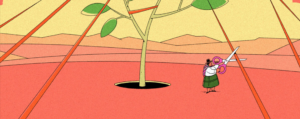A More Humane and Promising Approach to Reducing Cultivation of Crops for Illicit Markets
It is our pleasure to share with you a new report from the Washington Office on Latin America (WOLA). Development First: A More Humane and Promising Approach to Reducing Cultivation of Crops for Illicit Markets surveys the evidence on coca and opium crop reduction efforts over the years, and identifies ten lessons to help shape more successful, less harmful policies.
Despite billions of dollars spent on aggressive crop eradication efforts, overall coca and poppy production has remained robust, and cocaine and heroin prices on U.S. streets have fallen sharply since the early 1980s. For two decades, the area under coca cultivation in the Andean region has hovered near 200,000 hectares, according to official U.S. estimates.
The evident failure of crop eradication campaigns to achieve sustainable reductions in coca and poppy cultivation is prompting an increased emphasis on creating viable, legal livelihoods that allow farmers to transition away from a reliance on coca and poppy crops. We hope that Development First will contribute toward this long overdue shift to a more promising approach.
The report argues that proper sequencing is crucial to sustainable success in curbing cultivation of crops for illicit markets: development must come first. Eradication campaigns are counter-productive unless alternative livelihoods for growers are already firmly in place. Moreover, development policies must be conceived and implemented in genuine cooperation with the affected farmers and their communities.
The report also recognizes that even the most well-designed rural development strategies will take time to bear fruit, and that the impact will be limited if lucrative cocaine and heroin markets continue to expand around the world.
To read the full report click here.




